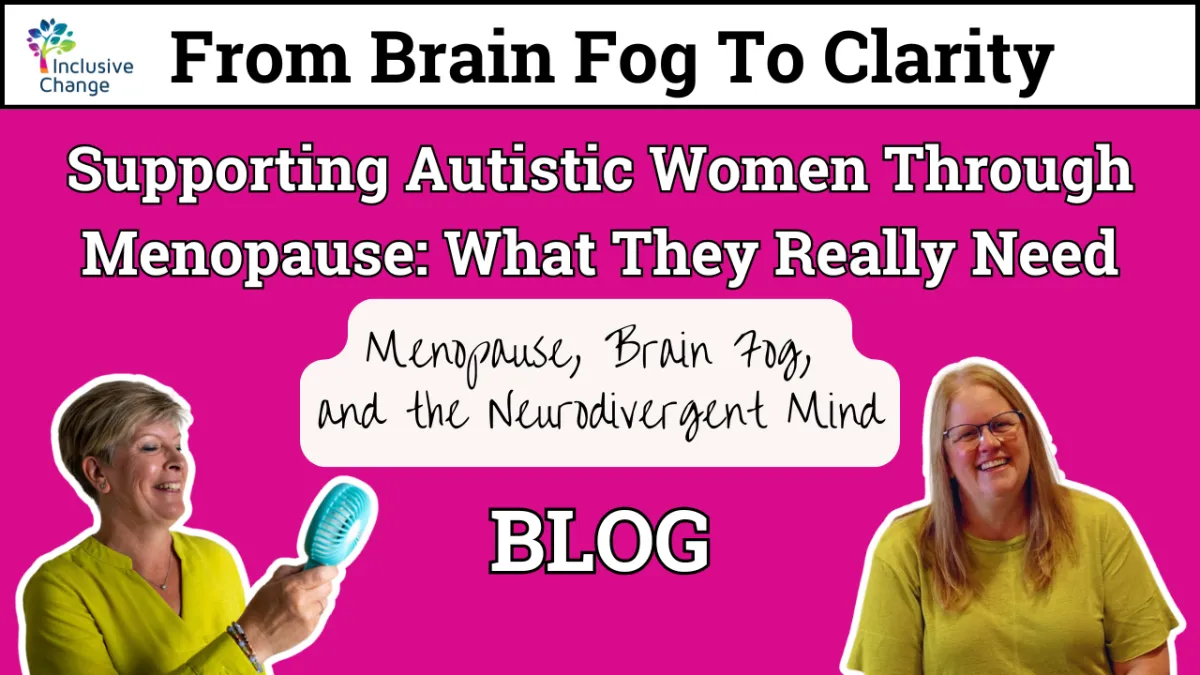
Supporting Autistic Women Through Menopause: What They Really Need
Supporting autistic women through menopause isn’t about offering sympathy or handing out pamphlets.
It’s about understanding how neurological difference meets hormonal upheaval - and creating systems, conversations, and environments that honour that experience.
Whether you’re an employer, colleague, healthcare provider, or someone navigating this yourself, here’s what true support looks like.
1. Understand the sensory impact
Menopause can amplify existing sensory sensitivities. Autistic women may find clothing textures, sounds, light, and temperature regulation harder than ever.
Support tip:
Create or request low-stimulation environments: quieter offices, dimmer lighting, comfortable dress codes.
2. Respect need for routine
Disrupted sleep, foggy thinking, and hormonal shifts can make change feel unbearable. Routine is often a lifeline.
Support tip:
Offer advance notice for changes at work. Keep meeting structures consistent. Honour predictable schedules where possible.
3. Recognise emotional overload
Mood swings, emotional sensitivity, and shutdowns are real. This isn’t rudeness or being 'too emotional' - it’s neurological and hormonal flooding.
Support tip:
Allow space for breaks. Don’t penalise emotional responses. Encourage slower, thoughtful communication styles.
4. Avoid vague feedback
Many autistic women find ambiguity confusing or stressful, especially when cognitive capacity is already strained.
Support tip:
Offer clear, specific feedback. Avoid hints or implications. Name things directly but kindly.
5. Don’t force group interaction
Social burnout is common in both autism and menopause. Add workplace pressure to 'be a team player', and it’s a recipe for shutdown.
Support tip:
Make socialising optional. Respect preferences for solo work. Let people opt out without judgement.
6. Honour autonomy and dignity
Autistic women navigating menopause are not fragile, they’re just rarely supported in ways that truly honour their needs.
Support tip:
Ask: “What would make this easier for you?” And trust the answer, even if it’s different from what you’d expect.
7. Believe lived experience
Most autistic women have spent decades being told they’re wrong, dramatic, or 'too much'. They know their bodies and brains. Believe them.
Support tip:
Validate their insights. Create environments where they don’t have to defend their needs.
8. Offer menopause education tailored to neurodivergent women
Standard menopause support often assumes a neurotypical experience. It doesn’t include the masking, sensory, and cognitive challenges that autistic women face.
Support tip:
Signpost or offer access to inclusive, neurodivergent-affirming workshops and coaching.
Menopause doesn’t have to be devastating. With the right kind of support, it can be a turning point, a chance for autistic women to stop masking, start naming, and feel truly seen.
That’s what From Brain Fog to Clarity was built for.
Let’s do support differently.